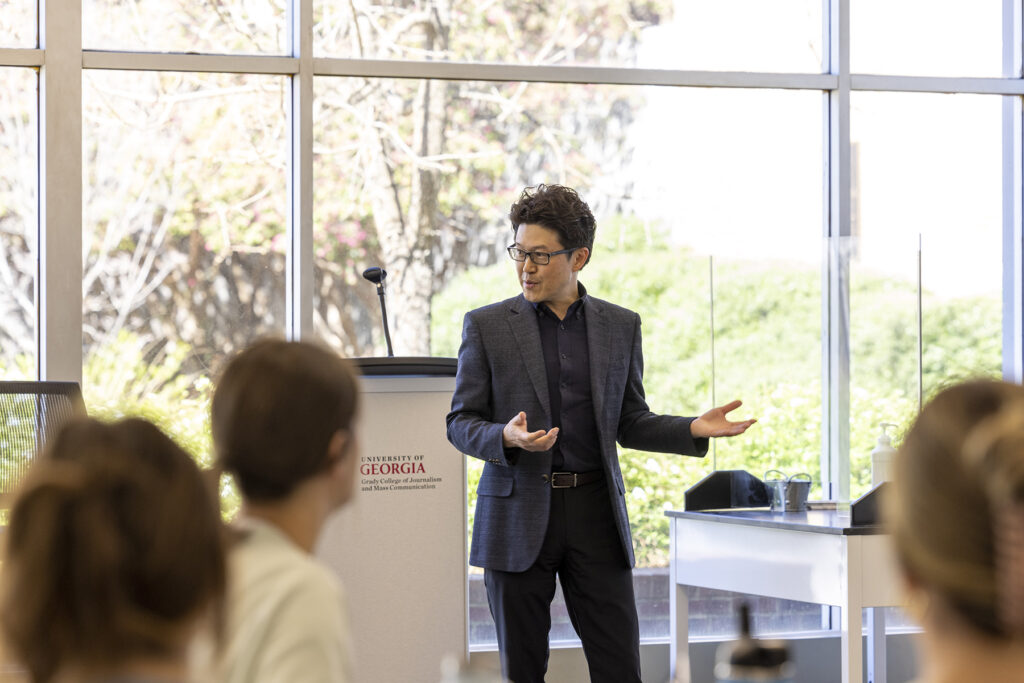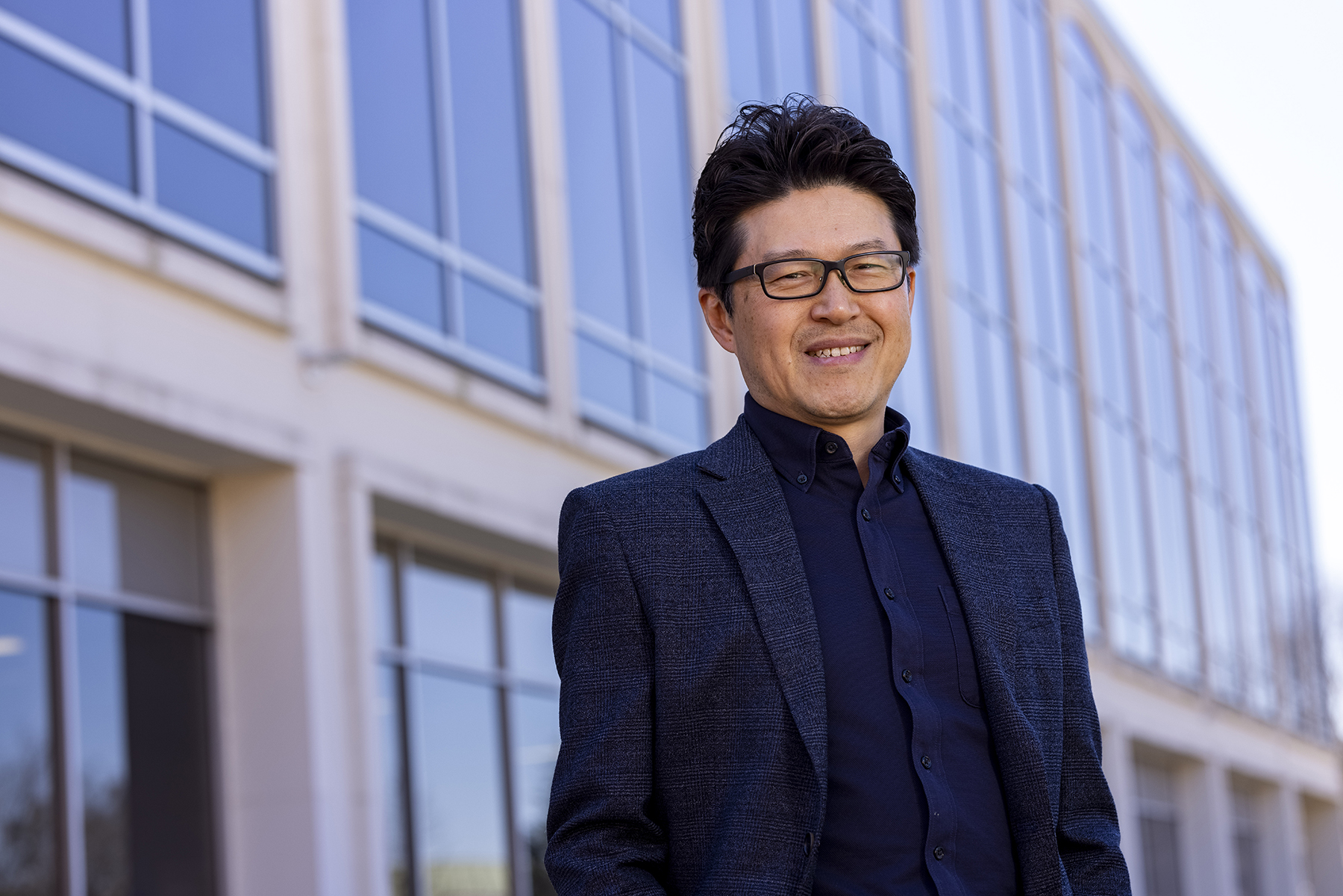Whether his students are a group of undergraduate advertising students, graduate advisees or international visiting professionals, the guide that Jooyoung Kim uses in his teaching is the same: helping people become innovators through thinking and doing.
Inspired by Apple’s Steve Jobs, Kim frames his teaching philosophy from bringing together the two pillars of thinking and doing in one person.
“To be a thinker, you have to have knowledge,” Kim said. “To be a doer, you must apply your knowledge and experience in the classroom to settings in real life. That collective experience can help a person succeed, innovate and make positive impacts whether it be at a micro or macro scope.”
In addition to teaching advertising courses, Kim’s research mainly focuses on the roles of advertising in branding context.
“I like to observe and theorize how things work, especially human behavior and thoughts,” Kim said. “Since a brand is a perception shaped by a set of constantly updated cognitive, emotional and sensory experiences, my research scientifically explores how advertising helps that process. And, I want to provide useful insights at both a small and large scale.” As the Dan Magill Georgia Athletic Association Professor in Sports Communications, his research also examines advertising and brand communication in the sports context.

As a means to connect with academics across the world, Kim serves as editor-in-chief of the Journal of Interactive Advertising and was secretary of the American Academy of Advertising, a flagship learned society for advertising science and research. Kim also directs the Advertising and Branding Insights Studio at UGA to facilitate interdisciplinary collaborations that focus on research-driven insights in advertising and branding using various scientific approaches.
Kim founded the Business and Public Communication Fellows program to provide international professionals in communication fields with the opportunities to learn from the faculty at Grady College, known as one of the top programs in media and mass communication, especially in advertising and public relations research. Created in 2010 in conjunction with the Cox International Center, the program has graduated more than 100 participants.
Amid the increasing awareness of diversity, equity and inclusion, support for Korean Americans on campus is important to Kim, as well. He co-founded the Korean American Faculty Association at UGA last summer, which is committed to increasing the visibility of its members and mentoring the Korean and Korean American students on campus. He currently serves as vice president of KAFA.
Preparing students is at the heart of Kim’s teaching, and he believes that the skills he teaches are transferable to any career.
“Advertising is science. The system of knowledge and skillsets related to advertising, including data analytics, research and message strategy, are important competences for any career,” he said. “Moreover, communication is a critical component for the success of any project. If you think about the terms such as ‘science communication’ and ‘environmental communication,’ you can see why.”
Kim is always thinking about the future and encourages his students to be, too. For instance, Kim recognized the importance of understanding large media and consumer data and realized several years ago that there was a gap in understanding between advertising and data science experts. He then formatively created a graduate course to teach data science for communication research. More recently, he encouraged his students to include metaverse advertising strategies in their capstone projects for Nike last fall, acknowledging the importance of the emerging media environment for advertising.
“I want to make my teaching relevant to what my students will need to be thinking and doing after graduation. I want to go beyond the textbook and ask, ‘How can you use these ideas for your future career?’ Let’s do it now and see how it goes. Because of the ever-changing media environment, we may never be able to prepare our students perfectly. But knowing how to think and do simultaneously should last and foster themselves to be constantly prepared,” he said.


